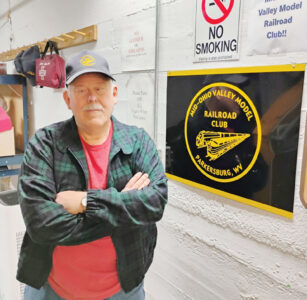Heckert, Criss claim Morrisey retaliated against them by withholding money

West Virginia's Capitol dome is shown in Charleston, W.Va. (AP Photo/Jeff Gentner, File)
PARKERSBURG — Lawmakers and state officials are at odds over a program that allows members of the House of Delegates to allocate money in their districts. House Finance Chairman Vernon Criss, R-Wood, said the program is on hold after Gov. Patrick Morrisey withheld funds for political reasons. A representative of Morrisey’s office said the governor is simply exercising fiscal responsibility in reviewing requests, while Speaker of the House Roger Hanshaw said it’s a natural part of the Legislature developing a working relationship with a new executive. “There is a constitutional process set up for disbursement of funds – the Legislature appropriates and then the Governor executes and makes funding decisions in the best interests of citizens and consistent with the law,” said Drew Galang, deputy press secretary for the Governor’s Office. “That is exactly what the Governor is doing with regard to the funding requests in question.” Criss said he received permission from Hanshaw to shut down the Legislative Economic Development Assistance program. “I have several requests laying on my desk but we have exercised the right not to proceed,” he said. Hanshaw, R-Clay, said Wednesday that nothing’s been shut down but he is working with the governor’s team to determine how to proceed with the LEDA program and other issues. “It would be natural for a new administration to decide how they work with us,” he said. The Legislative Economic Development Assistance program divides money among delegates each year to be awarded based on recommendations from the legislators. Criss said it’s generally used for physical items and equipment that are one-time expenditures. Criss and Del. Scot Heckert, R-Wood, say requests by Heckert this year have not been authorized by the Governor’s Office. “If you don’t agree with the governor or vote the way the administration wants you to vote, they’re going to find a way to try to punish you,” Heckert said. As one example, Heckert cited his vote against legislation Morrisey supported to eliminate the certificate of need process for health care facilities. He said he voted the way his constituents wanted on that issue but doesn’t always vote in opposition to the governor, a fellow Republican. “It’s wasn’t like I was a straight-line ‘no’ on anything he wanted,” Heckert said. Heckert said the requests included $5,000 for equipment for the Blennerhassett Middle School wrestling and track programs, $5,000 to upgrade interior and exterior cameras and electric door locks at the North Star Child Advocacy Center, $3,000 toward the renovation of the theater at Discovery World on Market in Parkersburg and $2,500 each for equipment for the Parkersburg South High School wrestling program and the Arc of the Mid-Ohio Valley. The requests are submitted to the Finance chairman’s office and then the Speaker’s for review before going on to the Governor’s Office, Criss said. Criss said the governor does have the ability not to release the funds, but the involvement of the office traditionally has been “simply as a place to do the accounting and write the checks.” “For the first time in this program, the governor has decided to get involved,” he said. “Before this governor, there has never been any questioning.” Galang said Morrisey “was never party to any agreement that entitles members of the Legislature to bypass the lawful, constitutional process and will continue to carefully consider all of the many funding requests that come to the executive branch. “The Governor will continue to make decisions based upon merit, not just because some politicians believe we should do things a certain way or because that’s the way things have always been done,” he said. Hanshaw said other House members voted against the certificate of need repeal and other issues supported by the governor and he has not heard any concerns similar to Heckert’s. He also said he has not spoken to Morrisey about this specific issue. Criss also attributes to retaliation Morrisey’s line item veto of an allocation of $300,000 to support the development of Jeep trails at Mountwood Park in the budget bill he signed this spring. “Politics, pure and simple,” Criss said when asked why he thought the money, which he “put in” the budget, was vetoed. Criss said the issues with funds supported by himself and Heckert are because they’ve been “outspoken” against some proposals by Morrissey. He pointed to his public questioning of Morrisey’s assertion in January that the state faced a $400 million budget deficit in the then-upcoming 2026 fiscal year after former Gov. Jim Justice, now a U.S. senator, said he was not aware of any budget holes on the horizon. Galang said Morrisey made clear the reason he cut the $300,000 for Mountwood back in April. “In transmitting his budget decisions to the Secretary of State … he said that no supporting documentation was provided to the Executive to justify the expenditure.” Galang said. “We don’t think it’s right to just defer to a request regardless of the person’s title — all requests will be vetted to protect taxpayer interests.” Galang’s statement cited assistance provided to Wood County since the start of the governor’s term in January, including “more than $180,000 to Wood County for economic development projects and over $8.2 million to the Union Williams PSD in Wood County.” He also noted the governor signed 12 bills co-sponsored by Heckert and five on which Criss was the lead sponsor this session into law. Staff reporter Amber Phipps contributed to this story. Evan Bevins can be reached at ebevins@newsandsentinel.com.




